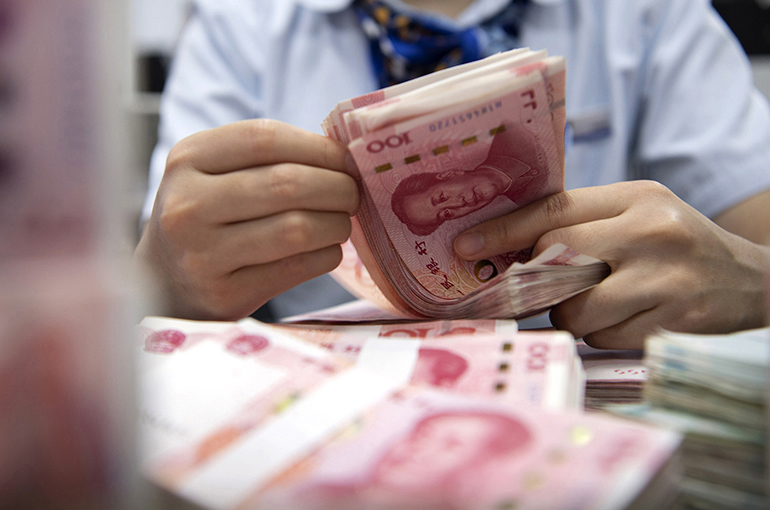 Chinese Yuan Could Break Past 2% Share of Global Reserves, Goldman Sachs’ Chief Economist Says
Chinese Yuan Could Break Past 2% Share of Global Reserves, Goldman Sachs’ Chief Economist Says(Yicai) Sept. 18 -- If China continues to develop its economy, avoid crises, expand Chinese yuan-denominated assets that are accessible to foreign investors and build market confidence, then, based on lessons drawn from the British pound giving way to the US dollar, the share of the yuan in global foreign exchange reserves could rise well beyond the current 2 percent level, according to a chief economist at US banking giant Goldman Sach’s China arm.
Changes in the world’s dominant currency are rare, Shan Hui wrote on the China Chief Economist Forum’s WeChat account yesterday. Over the past 150 years, the only example has been the British pound yielding to the US dollar. This shift offers three important lessons for the study of dominant currencies and currency internationalization.
First, becoming the leading currency takes a long time, said Shan, who is also a council member of the CCEF. Second, the policies and actions of both the challenger and the dominant country affect the rise and fall of a currency's international use. Third, major recessions and severe economic downturns can delay or even block a currency’s internationalization.
Since 2000, China's share of the world’s gross domestic product has risen to 19 percent from 6 percent. In international trade, China has overtaken the United States to become the largest contributor to global goods trade. China accounts for 17 percent of the world's population and 33 percent of global manufacturing value added. For more than 140 countries, China is a larger trading partner than the US. Yet the use of the yuan in international financial activities and official reserves remains relatively low.
Push for Diversification
Beyond the economic backdrop, the global geopolitical landscape has also been shifting in recent years. Since the Russia-Ukraine conflict in 2022, emerging market central banks have shown an increased willingness to diversify their assets. Although still at an early stage, this demand could open the door to faster internationalization of the yuan in the coming years, Shan said.
China’s efforts to internationalize the yuan follow many traditional paths but they may also have distinctive features. First, China may focus on expanding the offshore market while keeping the onshore market relatively unchanged. Second, although other reserve currencies play a larger role in global securities investment, the yuan may be more oriented toward foreign direct investment. Third, China maintains a substantial current account surplus, Shan said.
Strategic Considerations
Becoming a reserve currency also comes with costs that China may want to avoid, including the potential for a sharply stronger yuan. However, the trade war, along with US export controls on semiconductors and other high-tech products and services, have strengthened China’s resolve to reduce its reliance on the dollar and guard against the risk of being excluded from the US dollar system. From China’s perspective, internationalizing the yuan helps reshape the global monetary order and safeguard the country’s financial system. This makes it a matter of national security.
China’s growing manufacturing power and the current geopolitical shifts give the yuan new opportunities to expand internationally, but there are still major challenges. Focusing on offshore markets while keeping the domestic market stable is a workable solution, Shan said. Nevertheless, difficulties remain, especially when the greenback rises sharply and the yuan faces depreciation pressure.
The CCEF is composed of chief economists from 20 top financial institutions. With a global perspective, it focuses on practical issues related to China’s economic growth and financial market development. Its aim is to serve as a high-level think tank for economic and financial policy.
Editor: Kim Taylor